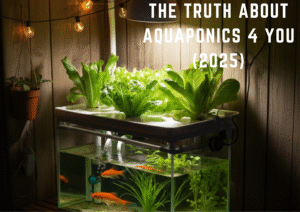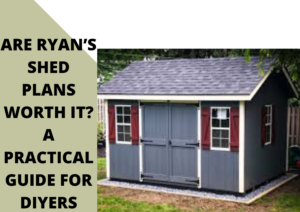
 Rooftop tents (RTTs) have revolutionized overlanding and car camping, offering a comfortable and convenient off-ground sleeping solution. However, for some adventurers, particularly those with smaller vehicles or those seeking maximum fuel efficiency, weight is a significant concern. Fear not, weight-conscious campers! This comprehensive guide dives into the world of lightweight rooftop tents, reviewing some of the best options on the market to help you find the perfect fit for your next off-road adventure.
Rooftop tents (RTTs) have revolutionized overlanding and car camping, offering a comfortable and convenient off-ground sleeping solution. However, for some adventurers, particularly those with smaller vehicles or those seeking maximum fuel efficiency, weight is a significant concern. Fear not, weight-conscious campers! This comprehensive guide dives into the world of lightweight rooftop tents, reviewing some of the best options on the market to help you find the perfect fit for your next off-road adventure.
Why Choose a Lightweight Roof Top Tent?
Lightweight RTTs offer a multitude of advantages:
- Fuel Efficiency: Every pound counts when it comes to gas mileage. A lighter tent translates to less drag and weight on your vehicle, resulting in improved fuel efficiency, especially on long journeys.
- Vehicle Compatibility: Not all vehicles can handle the weight of a bulky rooftop tent. Lighter options are ideal for smaller SUVs, car-based campers, and those with cars with lower weight capacities.
- Ease of Use: Lighter tents are generally easier to maneuver and install, especially for solo travelers. You won’t need an extra set of hands to hoist a heavyweight onto your roof rack.
- Aerodynamics: A lighter, more streamlined tent profile means less wind resistance while driving, leading to better handling and stability, particularly on windy roads.
Top Lightweight Roof Top Tent Contenders:
- Roofnest Meadowlark: This ultralight champion weighs in at a mere 90 lbs, making it a fantastic option for weight-watchers. Despite its featherweight design, the Meadowlark boasts a sturdy aluminum frame and high-quality waterproof canvas for comfortable and weatherproof camping. An easy setup process with telescopic poles allows for quick deployment.
- Tepui Lowcountry LS: Another top contender in the lightweight category, the Tepui Lowcountry LS weighs just 98 lbs. This aerodynamic tent features a sleek design that minimizes wind resistance. The breathable rip-stop nylon fabric ensures proper ventilation and condensation control. Thanks to its four sturdy aluminum poles, setting up the Lowcountry LS is a breeze.
- iKamper Skycamp Mini: At 130 lbs, the iKamper Skycamp Mini lives up to its name, offering a compact and lightweight option. This innovative tent folds out into a spacious and comfortable interior, perfect for couples or small families. It boasts a pop-up style setup for effortless deployment and folds down to a low-profile design for efficient storage.
- Yakima Tepui Baja Rack Quickmount: At 160 lbs, it is not the lightest on this list, but it deserves a mention for its unique design. This all-in-one system combines a pre-assembled rooftop tent with a heavy-duty roof rack, eliminating the need for separate installation. The Baja Rack Quickmount is an excellent option for those seeking a convenient and user-friendly setup.
Factors to Consider When Choosing a Lightweight Roof Top Tent:
- Weight: This is obviously the most crucial factor. Consider your vehicle’s weight capacity and prioritize tents well below that limit.
- Capacity: How many people will be sleeping in the tent? Lighter tents tend to be smaller, so choose a size that comfortably fits your needs.
- Material: Look for tents with high-quality, lightweight materials like aluminum frames and breathable, waterproof fabrics.
- Ease of Use: Consider the setup process and prioritize tents that are easy to assemble and disassemble, especially if you’re traveling solo.
- Features: Do you need additional features like awnings, annexes, or skylights? These can add weight and complexity, so choose wisely.
Frequently Asked Questions (FAQs) about Lightweight Roof Top Tents:
- Are lightweight tents as durable as heavier ones?
Lightweight materials can be just as strong as heavier ones. Look for tents with high-quality aluminum frames and rip-stop fabrics that are designed to withstand the elements.
- Will a lightweight tent keep me warm in cold weather?
Many lightweight tents offer adequate insulation for three-season camping. However, if you plan on camping in extreme cold, consider a heavier tent with thicker insulation.
- How easy are lightweight tents to set up?
Lightweight tents generally prioritize ease of use: many feature pop-up mechanisms, telescopic poles, and user-friendly designs for quick deployment.
- Do lightweight tents offer the same amenities as heavier tents?
While some lightweight tents may lack features like awnings or annexes, they prioritize essential comfort features like comfortable sleeping quarters and proper ventilation. You can always add accessories like awnings later.
Conclusion
Lightweight rooftop tents open up a world of off-road adventures for weight-conscious campers and those with smaller vehicles. By prioritizing fuel efficiency, vehicle compatibility, and ease of use, these tents offer a comfortable and convenient camping solution without sacrificing performance. When choosing a lightweight RTT, consider your needs in terms of weight capacity, sleeping capacity, desired features, and ease of setup.
Table of Contents
SEARCH HERE
CATEGORIES
RECENT POSTS



Advanced Mitochondrial Formula 2025: Can It Truly Recharge Your Energy Levels?

The Truth About Aquaponics 4 You (2025): Does It Actually Work?




Hepato Burn Supplement Review: What You Need to Know Before Buying



“The Ultimate Guide to Papillex: Natural Immune Support for HPV Relief”



Slim Down Naturally: The Truth About Plant-Based Fat Burner That Actually Work

TedsWoodworking Review 2025: Is It Worth It for Your DIY Projects?




“Immunotherapy vs. Chemotherapy: A New Era in Cancer Treatment”





“The Ultimate Guide to Hyperpigmentation Laser Treatment in 2025”


Is UV 7 Good for Tanning? What You Need to Know Before You Glow


Planning a Trip from New Windsor to Grand Canyon? Here’s What to Know


“Your Guide to the Closest Airports to Yosemite National Park”

“How to Create the Perfect Gluten-Free Chicken Soup for Cold Days”



“The Secret to Authentic Creole Sauce: Step-by-Step Recipe”


“Natural Weight Management Made Easy: Exploring Nagano Tonic”


Can Rosemary Oil Reverse Male Pattern Baldness? The Truth Revealed



ProvaDent Reviews & Complaints: Is This Supplement the Real Deal for Oral Health?

“Everything You Need to Know Before Buying the Clawsable Heated Cat House”

“Are Ryan’s Shed Plans Worth It? A Practical Guide for DIYers”


“Miracle Massage Wand and More: Exploring the Ageless Knees Method”

BV No More by Jennifer O’Brien: A Simple, Natural Approach to Tackling Bacterial Vaginosis (BV)

Unlock Your Dog’s Full Potential: A Complete Review of Brain Training for Dogs
